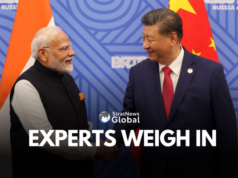In a diplomatic setback, high-level talks between South Korean and US officials over President Donald Trump’s tariffs have been postponed due to a scheduling conflict involving US Treasury Secretary Scott Bessent, South Korea’s finance ministry said on Thursday.
The two sides will reschedule the meeting between Bessent and South Korean Finance Minister Koo Yun-cheol, as well as the top trade envoys of both countries, as soon as possible, the ministry said.
Last Minute Changes
Koo was set to board a flight for Washington on Thursday to attend the meeting on Friday in the hope of hammering out a deal that would spare Asia’s fourth-largest economy from Trump’s punishing 25% tariffs set to take effect on August 1.
The sudden announcement by the finance ministry an hour before Koo’s departure cast fresh doubts about whether Seoul would be able to pull off an agreement to avert US import duties that could hit some of its major exporting industries.
Markets Hit
The benchmark KOSPI stock index trimmed early gains to trade up 0.7% as of 0134 GMT, as auto and auto parts makers fell on news of the postponed talks, with Hyundai Motor dropping as much as 1.8%.
Washington gave no further details for postponing Friday’s meeting, the finance ministry said, though US officials are embroiled in a flurry of different negotiations.
Bessent was set to meet China’s Vice Premier He Lifeng in Sweden for a new round of trade talks ahead of the August 12 deadline set for Beijing. Washington is also moving towards a deal with the European Union.
Minister for Trade Yeo Han-koo and Industry Minister Kim Jung-kwan, who have travelled to Washington this week, have been meeting with US officials as scheduled, the South Korean government said.
Yeo will hold a meeting with US Trade Representative Jamieson Greer, the industry ministry said.
More Pressure After Japan Move
Pressure on South Korea heightened this week after Japan clinched a deal with the United States, which Trump said would see Tokyo allowing greater market access for American products including autos and some agricultural products.
The two major Asian security allies of the United States compete in areas such as autos and steel, and Japan’s deal was seen by investors as a benchmark for the type of agreement Seoul should try to squeeze out in negotiations, analysts have said.
The involvement of a range of ministerial-level officials from Seoul in broad discussions with US officials in recent days suggested the two sides were at work on a trade package that could potentially involve a range of sectors, including South Korea’s sensitive farm markets.
Access To US Markets Key
South Korean officials have said access to US markets is key to industrial cooperation between the allies that would help rebuild American manufacturing industries.
Finance ministry officials in Seoul declined to comment on media reports that Washington is asking South Korea to set up a large-scale investment fund in the United States to support the reconstruction of its manufacturing industry.
South Korea has been reviewing the feasibility of joining a $44 billion gas pipeline project in Alaska floated by Trump.
(With inputs from Reuters)





